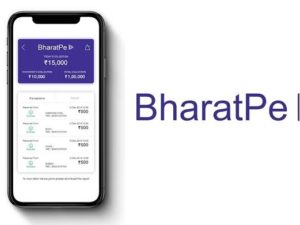WhatsApp is a popular messaging app that allows users to send text messages, make voice and video calls, and share files with other users around the world. While WhatsApp is generally considered to be a secure and private messaging app, there are some potential risks and concerns that users should be aware of.
End-to-end encryption
One of the key features of WhatsApp is end-to-end encryption, which means that messages and calls are encrypted from sender to recipient, making them unreadable by anyone else, including WhatsApp and third parties. This ensures that only the intended recipient can read the message or listen to the call. Even WhatsApp itself cannot read or access the contents of messages sent between users. Whatsapp hack
However, it’s important to note that end-to-end encryption only applies to messages and calls sent between WhatsApp users who have the app installed and activated on their device. If a user sends a message or makes a call to a non-WhatsApp user or a user who has not activated the app, the communication may not be encrypted and could potentially be intercepted or accessed by a third party.
Privacy concerns
WhatsApp has faced some privacy concerns and criticisms in recent years, particularly after it was acquired by Facebook in 2014. In 2021, WhatsApp announced changes to its privacy policy that would allow it to share some user data with Facebook, leading to concerns about data sharing and privacy violations. However, after significant backlash, the company has since delayed the implementation of these changes.
Additionally, WhatsApp collects some data about its users, such as phone numbers, profile pictures, and device information, which is used to provide and improve the service. However, WhatsApp has stated that it does not share user data with Facebook for the purpose of advertising, and that messages and calls remain private and encrypted.
Security vulnerabilities
Like any software, WhatsApp is not immune to security vulnerabilities and potential attacks. In 2019, a security vulnerability was discovered in WhatsApp that allowed attackers to install spyware on users’ devices simply by calling their phone number. The company quickly released a patch to fix the vulnerability, but the incident raised concerns about the security of the app.
In addition, there have been reports of phishing scams and social engineering attacks targeting WhatsApp users. These attacks often involve sending messages that appear to come from a trusted contact, such as a friend or family member, but actually contain malicious links or attachments that can install malware or steal sensitive information.
Overall, while WhatsApp is generally considered to be a secure and private messaging app, there are some potential risks and concerns that users should be aware of. To protect themselves while using WhatsApp, users should follow best practices such as:
- Keeping the app and their device’s software up to date to ensure they have the latest security patches
- Only communicating with trusted contacts and being wary of messages from unknown or suspicious contacts
- Avoiding clicking on links or downloading attachments from messages unless they are certain they are legitimate
- Using strong, unique passwords and enabling two-factor authentication to protect their WhatsApp account
- Being mindful of the information they share on the app and adjusting privacy settings as needed.


